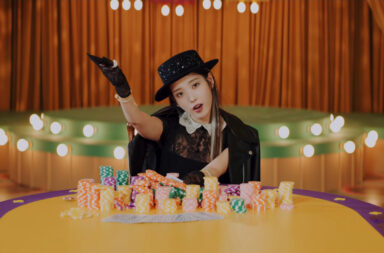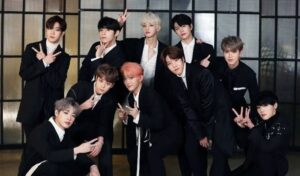
Many groups are known for their rich lyricism — BTS, Stray Kids, and more — but a group that isn’t, is Woolim Entertainment‘s middle child, Golden Child (‘Golcha’), and understandably so! There simply isn’t enough attention on the group.
Golcha’s earliest years weren’t the best. The group lost a member within months of debut, adopted a cheerful and refreshing concept in 2017-18 when dark and edgy concepts were taking off, went on hiatus for much of 2019, and finally returned with a darker, trendier concept. The hiatus, coupled with their concept change, affected Golcha’s popularity considerably. As seen on Gaon, sales of their November 2019 comeback album, Re-boot, were even lower than those of their debut album, Gol-cha! No wonder then, that there isn’t enough attention on them.
However, what has since unfolded since Re-boot has been a golden phase of steady growth, aided by an appearance on MNET‘s Road To Kingdom and greater versatility in sound and concept — whether trendier and darker (“One (Lucid Dream)“) or youthful (“Pump It Up“). As Golden Child continue their upward climb with the comforting “Burn It” (January 2021), it’s worth taking the time to pause to appreciate some of their more complex lyricism.
While many Golcha songs are cheerful, fun, and touch upon youthful love, many others are quite intense. Most intriguing of these is their post-hiatus trilogy, “Wannabe“, “Without You” and “One (Lucid Dream)”, where Golden Child undertake a quest to become one with perfection. All three songs have been composed by Woollim’s in-house producer BLSSD. Golcha members TAG and Jangjun participated in writing some of the lyrics.
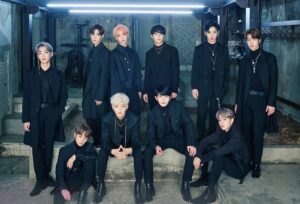
In “Wannabe” (November 2019), the song’s persona realizes he’s in despair and can only be saved by becoming one with “you”. He asks “you” to teach him all about yourself. This must to be highlighted: Golden Child aren’t singing about being together with the one they love, but of desiring to be the one they love. This is not quite the same as learning to love oneself, but encompasses a wider range of possibilities.
The intensity of this desire surfaces in the lyrics, which describe the song’s persona’s despair —
I’ve lost my smile
I’ve forgotten what it’s like to be happy
As if darkness has fallen
Lay me down
— and his belief that only “you” can save him.
Show me
Teach me about yourself
In this world that’s only filled with darkness
Your eyes
Make my eyes open
Make me dance
Endless fantasy, fantasy
In fact, he can only be saved by becoming “you”,
I wanna be, wanna be you (dat dat dat dat dat)
I wanna live in you (dat dat dat dat dat)
I wanna be, wanna be you
As seen from the lyrics to “One (Lucid Dream)” which closes the trilogy, the song’s persona views his union with “you” as attaining perfection.
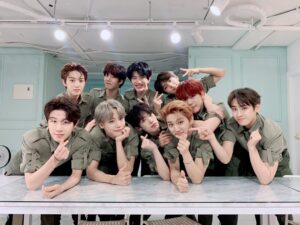
While the concept of being one with one’s love is not new (see for example, Stray Kids‘ “I Am You” and Zico‘s “I Am You, You Are Me“), no other release is quite as obsessively focused on the journey to that one-ness, nor does any other release consider it akin to perfection.
On the other hand, this obsession finds fascinating parallels in other cultures, including in texts much deeper than one would expect. The famous Sufi mystic, Rumi, for instance, wrote countless poems expressing his yearning for union with his love, the divine, the ultimate perfection. While there is no doubt that Sufi mystics have nothing to do with “Wannabe”, the example shows the depth of possibilities within the concept.
One such possibility is explored in Golcha‘s performance of “Wannabe” on Road To Kingdom (May 2020), which is perhaps the most symbolic and representative of “Wannabe”‘s lyrics. Impressive (string) orchestral and rock elements aside, the performance is centered around a white violin suspended from above the center of the stage. Incorporated in the choreography are Golden Child’s desperate attempts to reach it.
The Road To Kingdom version of “Wannabe” also incorporates a solo violin piece by main vocal Joochan (Paganini’s “Caprice No. 24 in A minor, Op.1”), and use of violins as props. Although his piece was likely to have been pre-recorded, it is meaningful to note that Joochan does play the violin, and can indeed play Caprice No. 24. On Road To Kingdom, Joochan and Golden Child bring to life the song’s persona, and his all consuming desire to be one with his art.
I want you even more
I’m so thirsty, I’m drinking you in, dump dump
Closer to you
I want heartbeat uh uh
I wanna be you
But alas, his efforts are in vain. In the end, although he leaps for the elusive white violin, he fails to grasp it. It’s a stunning and moving performance: perfect in its own demonstration of the failure to achieve perfection. Sadly, it was made doubly symbolic by Golden Child’s elimination from Road To Kingdom shortly after. Clearly even perfection can fail, and if so, was it ever even “perfect” to begin with?
The story continues from “Wannabe”, in “Without You” (February 2020), where Golden Child paint a compelling portrait of despair. In “Without You”, Golden Child have failed to become one with “you”, and wander aimlessly, begging desperately for “you” to take their hand. At first, the song’s persona is the move, constantly on the search for “you”,
Woo, your scent surrounds me
In my memory, is where you are now
Woo, your heat heats me up.
I can’t stop
looking for you.
I’m back to this place again.
But later in the lyrics, after failing again and again, he seems to give up,
I stopped with everything,
I lost everything yeah
After a long run,
I’m back to this place again.
Despite all odds however, the song’s persona is revealed to have united with “you” in “One (Lucid Dream)” (June 2020), and achieved perfection.
You permeate me, burrow into me
Already perfect you and me.
As the most atmospheric of all three tracks, “One (Lucid Dream)” is aptly titled. Visually and sonically, “One (Lucid Dream)” conveys the feeling of being in a vast, empty space. Particularly noteworthy are Joochan and Y‘s high notes and falsettos, which work in tandem with the instrumentation to create the song’s atmosphere. Quick transitions between members (sometimes even within the same line) add urgency and movement to the dream.
In contrast to this dreamy sound, the lyrics talk about waking up from a meaningless dream and finding that one is already perfect, as he/she is. The song’s lyrics are seamlessly divided into two thematic halves. In the first half, the vocalists describe their futile search for “you”, continuing the theme of “Without You”. However, there is a sudden change. “Your” scent, so strongly craved by the song’s persona craved in “Without You”, is now beside him.
Strong scent digging deep inside me
I can hear you
Wrap me up deeply in your warm embrace
You’re already by my side
In the second half, the rappers take over — signifying that something has changed in him (the persona). He has now woken up from his dream, and found peace. Although he has failed to be one with “you”, to be perfect as he’d desired, he realizes that the one-ness he’d sought had been nothing but dream. In fact, once he opened his eyes, he realized he is already perfect.
Woke up to such a peaceful morning
The long show I saw was real, not a dream anymore
After a meaningless dream, comes meaningless peace
My undeniable dreamlike present
The one I wanted, and lost
The one I was already looking for, now I’m done
Opened my eyes and woke up already perfect
It’s interesting to note, however, that Golden Child also call this peace, “meaningless”. The song’s refrain too notes that the song’s persona is “falling down” towards this version of “you” that is the lucid dream (or reality).
I’m Fallin’ Down Down Down Down
Stars falling into a flawless ocean
I’m Fallin’ Down Down Down Down
You’re my lucid dream, I know
Yes, I’m already you
As beautiful as the imagery of stars falling into an already perfect ocean may be, the fact this peace is meaningless suggests that there may be no meaning in the very idea of perfection. That the search for oneself, and the idea of finding oneself is overrated. In many ways, the themes behind this trilogy are particularly relatable to modern millennials and those younger, who face constant pressure to follow their dreams, be productive, dust off failures, and succeed in love, career and life. In other words, to be perfect, and to present that perfect image of themselves to the world.
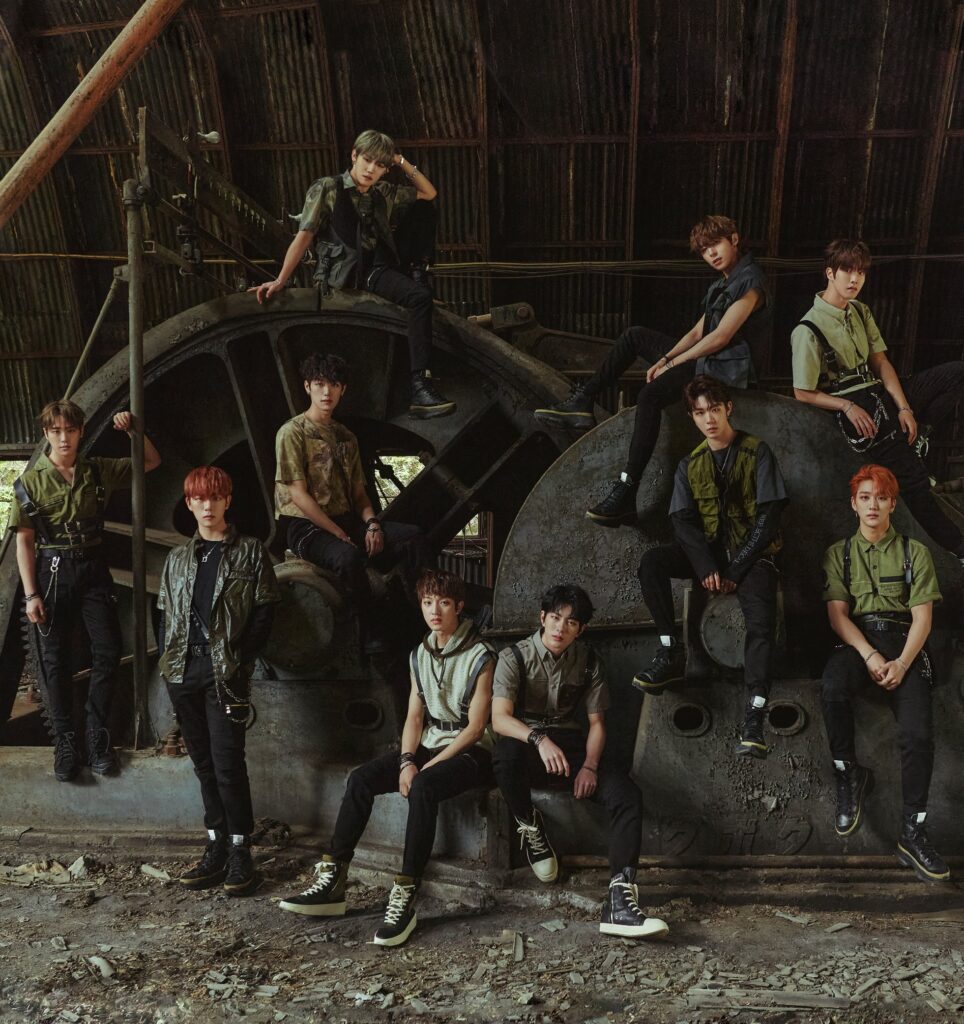
In much of their music, Golden Child deliver a mix of delicious melodies and gorgeous vocals to some truly fantastic musical instrumentation. Their concepts vary considerably, from refreshing (“DamDaBi“) and gentle (“Spring Again“) to more relatable (“Cool Cool“) or passionately romantic (“Don’t Run Away“).
The group showcases immense versatility as it skillfully pulls them off one after another. They’re also funny on variety, and maknae Bomin is slowly gaining recognition as an actor. In the coming years, it’ll be fascinating to see if Golden Child can break into the top ranks. They certainly have the potential, as well as the distinct advantage of a relatively well known company backing them. Fingers crossed!

